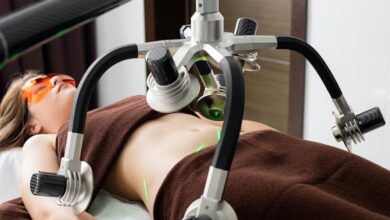A career in nursing offers a wide range of benefits, including high job satisfaction, good earning potential, and the chance to help people in a significant way. There is currently a national shortage of healthcare professionals, and skilled nurses are in high demand across the board. Becoming a nurse leader allows nursing professionals to expand their expertise and boost their salary and career prospects. However, becoming a nurse leader is not easy, and you will be required to work hard to gain the required skills and certifications. Nurse leadership is a challenging yet rewarding career path that can bring about several great benefits. If you are thinking about pursuing a leadership position, then here is your complete guide to becoming a nurse leader.
Learn about the responsibilities of a nurse leader
If you are interested in advanced nursing positions, then you should start by learning about different nurse leadership roles. Advancing your skills and qualifications to become a nurse leader is a big commitment, so you must have a good understanding of what the position involves. A good place to start is by researching nurse leader roles to learn about the job description and responsibilities. Transitioning from a regular nursing role into a senior position can have a big impact on your day-to-day duties and responsibilities. For instance, you may become responsible for empowering a team of nurses and managing other healthcare staff. Make sure you understand how the career move will affect your working life and prepare for any changes and additional responsibilities that will come with the role. There are lots of online resources offering information on nurse leader roles and how to get into senior nursing positions. You can also learn about nurse leadership roles by completing work placements or speaking with senior nurses. Research is a crucial step in advancing your career and becoming a nurse leader.
Gain hands-on nursing experience
Gaining hands-on nursing experience is essential if you hope to land a nurse leader position. Building relevant experience will give you a realistic overview of the nursing profession and help you learn about the different roles and responsibilities. It will also allow you to expand your professional network and build meaningful connections with people working in the nursing industry. Networking will help you advance in your career, especially if you are hoping to secure a senior nursing position. It is advisable to start building your practical experience as soon as possible. Ideally, you should have some relevant work experience before you start your bachelor’s degree in nursing. Having varied nursing experience will give you a competitive advantage when you start applying for senior nursing positions. According to advice on NurseJournal.org, you can get nursing experience by:
- Applying for nursing internships through your school or college. Remember to apply early and take the time to write an impressive application.
- Choosing a nursing program that offers a clinical placement.
- Finding a mentor or apply for mentorship nursing programs.
- Volunteering in healthcare facilities like hospitals or outpatient programs.
- Applying for entry-level positions in healthcare settings e.g., data entry or the medical research department.
Complete a bachelor’s degree in nursing
If you aspire to become a nurse leader, then you will need to start by earning a nursing degree. Most student nurses choose to enroll in a full-time bachelor’s degree, which typically takes four years to complete. You can either attend a traditional campus-based course or study for your nursing degree online. Take a look at this article by Nurse.org for some of the pros and cons of online nursing classes. While studying for a bachelor’s degree in nursing, you will be required to complete several nursing placements in healthcare settings. These are designed to give you clinical experience and teach you the practical skills needed to provide effective patient care.
Apply for a nursing license
Once you have completed a bachelor’s degree in nursing, you will need to apply for a license to work as a registered nurse (RN). Before being granted a license, you will need to sit and pass the National Council Licensure Examination – known as the NCLEX-RN examination. This assessment involves a series of questions designed to test your nursing skills and knowledge. Once you have passed the NCLEX-RI exam, you will be able to apply for a nursing license. It is advisable to complete practice papers before you sit the exam. These will help you prepare for the test and improve your chances of passing the first time. Keep in mind that every state sets its own criteria for nursing licensure, and you may need to complete additional steps before being granted a license. For that reason, you must always check the criteria for licensure beforehand and understand what you need to do.
Earn a higher nursing qualification
Most nurse leader positions require a higher qualification, such as a master’s degree or a Ph.D. If you are hoping to become a senior nurse, then you will need to invest in your education and earn higher certifications. These programs are designed to teach registered nurses advanced skills and knowledge and prepare them for senior nursing positions. Fortunately, many advanced nursing qualifications can be completed via distance learning. For instance, there is a good selection of online MSN to DNP programs that allow you to learn at your pace and choose your study schedule. A DNP (Doctor of Nursing Practice) is the highest qualification that a nurse can achieve. Having a DNP will put you in a strong position when applying for nurse leadership roles. Many registered nurses also complete an MSN (Master of Science in Nursing) to enhance their skills and boost their career outlook. Online nursing programs give you the flexibility to earn advanced qualifications alongside working. This has made it much easier for nurses to advance in their careers and secure senior positions without having to commit to a campus-based course.
Assess your skills and personality traits
Nursing qualifications and hands-on experience are crucial if you want to land a senior nursing position. However, you must also possess certain skills and personality traits to become an effective nurse leader. Working as a senior nurse is hard work, and not everyone is cut out for the role. Nurse leaders must have the following personality traits to be successful: the ability to build authentic relationships with both staff and patients, the confidence to inspire change in nursing practice, and a commitment to their professional and personal development. Nurse leaders must also have excellent communication skills and a passion for maintaining outstanding clinical care. Learning about the duties and responsibilities of a senior nurse and check that you have the skills, characteristics, and personality traits to excel in the role.
Apply for nurse leader roles
You should be in a position to start applying for senior nursing positions once you have gained the necessary qualifications and experience. Advanced nurses are in high demand, so you shouldn’t struggle to find senior positions if you can demonstrate the required skills and expertise. According to the Bureau of Labor Statistics, job opportunities for advanced nurse practitioners are expected to grow by a massive 45% by 2029. This is a lot higher than the average expected across other occupations. There is an increasing demand for healthcare services, and skilled nursing professionals have a fantastic job outlook. Nevertheless, there is still strong competition for the top nursing roles. This means that you must work on creating a strong resume that will impress recruiters. You can make your application stand out by demonstrating your managerial skills, e.g., give an example of a time when you inspired a team or drove positive change. Make sure you highlight your nursing expertise and certifications and take the time to check for errors on your application before you submit it.
Make your health and well-being a priority
Working as a nurse leader can be extremely rewarding, but it can also be and demanding and stressful. As a senior nurse, you will have to balance multiple responsibilities, and this can be physically and mentally draining. You must pay close attention to your health and well-being and recognize the signs of burnout. Keep stress to a minimum by taking the time to relax and unwind. You should also try to adopt healthy lifestyle habits like eating three balanced meals a day, choosing nutritious snacks, being active, and getting enough sleep. Following these habits should help you stay healthy and feel prepared to face the demands of a nurse leader position.
Summary
Nursing is an in-demand field that offers plenty of job perks and benefits. Becoming a nurse leader allows nursing professionals to expand their skills and expertise, increase their earning potential, and gain more responsibility in the workplace. Training to become a nurse leader takes time and commitment, but it can lead to a long and satisfying career. If you’re interested in pursuing advanced nursing roles, then use the above guide to help you plan your nursing career and secure your dream role.





